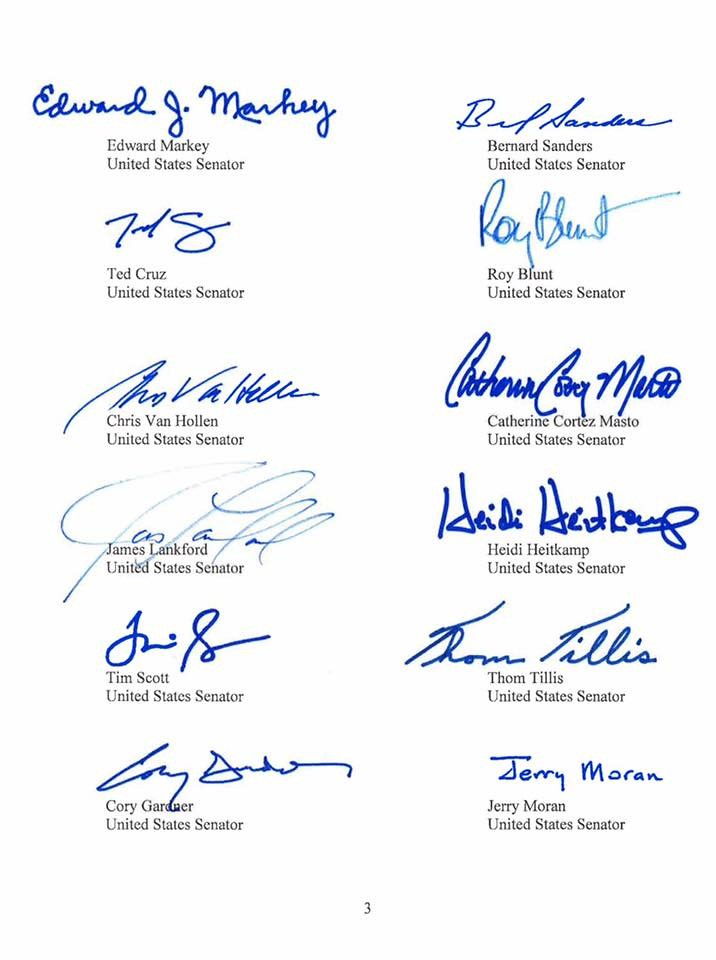That's not the actual title, of course, and it covers more ground than that.
I'm just happy that the fine folks at Ketagalan let me publish this behemoth, include a swear word and call the KMT a "virus".
Be warned, it really is long. But it's well-organized and I'd like to think thoughtful as well.
Showing posts with label republic_of_china. Show all posts
Showing posts with label republic_of_china. Show all posts
Tuesday, December 19, 2017
Saturday, November 11, 2017
Sometimes I change my mind
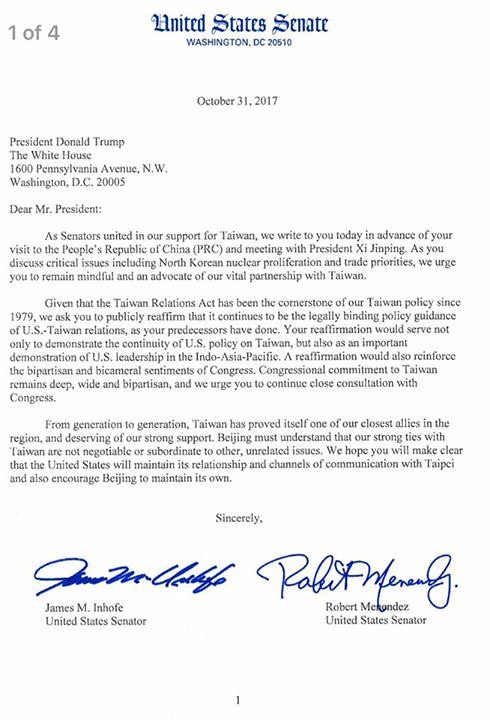
You know, I have said that I have trouble voting my conscience in American elections, because the people I support on (almost) every other platform are the people who either don't care or seem to be just plain wrong about Taiwan (although even that is sometimes hard to gauge). It's the same reason why I do not attempt to get into more hardcore pro-Taiwan advocacy in the US - when it comes to the conservative blowhards whom I want to mouth-punch on one hand for trying to take away my bodily autonomy as a woman, I doubt I could just turn around and talk to them civilly about Taiwan. It's my reproductive system they want to get their grimy hands in - it's kinda personal. I can't distance myself from it the way a lot of (male) people who are not threatened because of their gender can. I don't doubt they abhor it as well, but the ability to compartmentalize...well, that seems like a really nice privilege of having a penis.
I have also said that, while I was generally a Sanders supporter back when I could be one, and did vote for him in the primary, that I was concerned about what kind of president he would be vis-a-vis Taiwan. He was not exactly known for his foreign policy acumen, or at least was seen as weak in that area.
I mean, Trump is Trump and he's just hair and fart sounds so whatever, but generally Republican presidents have been better for Taiwan than Democratic ones. Those same Republican presidents have been bad news for women.
When you love Taiwan but have a vagina, this is a problem. It didn't seem possible to fully vote my conscience, because it appeared that those I could never vote for had the best possible Taiwan policy - that's not to say great, but the best thing going under the circumstances - and those I otherwise supported, shall we say, did not.
I had friends assure me that support for Taiwan was bipartisan, but that seemed unlikely in a world where Republicans were in the media doing everything I wanted Democrats to be doing - meeting with Hong Kong dissidents, introducing pro-Taiwan legislation. Then we have (rumors? Leaks? Real? Fake? Who even knows?) that Hillary Clinton wanted to discuss ditching Taiwan.
Then I saw this letter urging President Hair and Fart Sounds to support the Taiwan Relations Act in light of his (then upcoming) visit to China to meet with President Angry Pooh. And unless it's some elaborate troll job aimed specifically at me (it's not), it induced elation and despair at the same time.
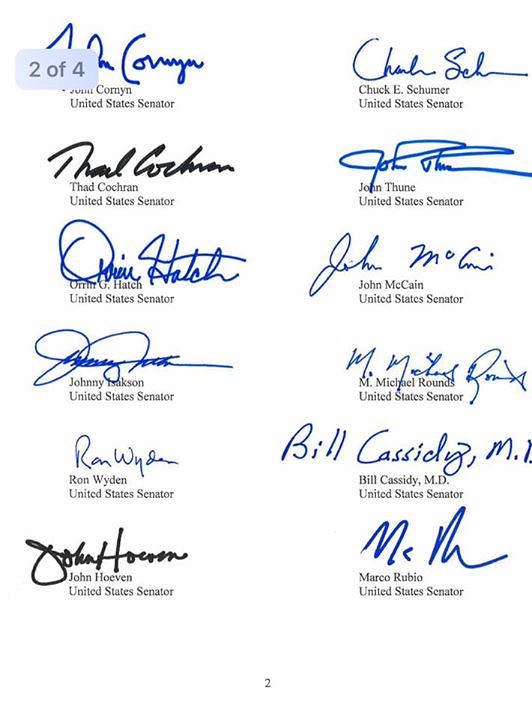
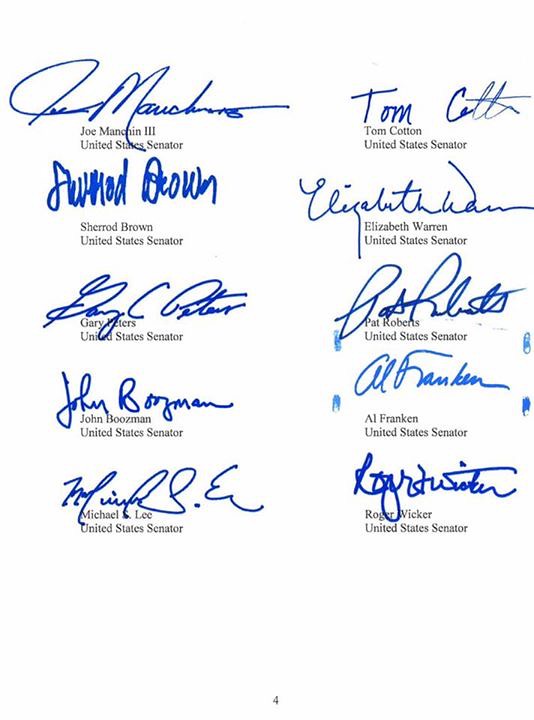
Robert Menendez. Ron Wyden. Edward Markey. Chuck Schumer. Chris Van Hollen. Catherine Cortez Masto. Heidi Heitkamp (though I don't always agree with her). Joe Manchin. Sherrod Brown (who says a lot about Taiwan and it almost never seems to get media attention). Gary Peters. Elizabeth Warren. Al Franken. Bernard Sanders.
Now, I'm not trying to claim that the Taiwan Relations Act is the gold standard of the way the world should be treating Taiwan. It's not. Nobody in the world is treating Taiwan the way it should be treated, not even its (checkbook) diplomatic allies. Taiwan deserves better than what it's getting, period. It deserves international recognition and support, including support for changing its governmental framework from fundamentally Chinese to fundamentally Taiwanese. I'm not a fan of support for the "ROC on Taiwan" as a way of opposing Communism or even simply opposing China - I'm not a fan of the ROC at all.
I'd prefer a world in which it was a given that Taiwan could decide its future without international threat, and in which support for Taiwan was based on it simply being the right thing to do - supporting Taiwan for Taiwan's sake and everything it has to offer the world - and not in any sort of relation to how the world handled China. That is, however, not the world we live in.
Considering Taiwan's former authoritarian leadership's complicity in creating the state of limbo the country still finds itself, and considering that "rah rah ROC because we hate the PRC" - and "well, here's the Taiwan Relations Act which is a bit milquetoast but it's something and frankly a unique piece of policy given the situation" are not ideal but are, unfortunately, how the 20th century shook out, I'll take it.
So, I've changed my mind on a few things.
Yes, GOP rhetoric on Taiwan, while imperfect, is still closer to the mark than Democratic rhetoric. Conservative rhetoric on Taiwan is more acccurate - though again, flawed - than liberal discourse.
However, it is clear that despite this, support for Taiwan is a bipartisan issue. Call me a Doubting Thomas - I needed to see it in the flesh. You don't get Al Franken, Elizabeth Warren and Bernie Freakin' Sanders signing a letter alongside Marco Rubio and Ted Cruz if something is a partisan issue. You just don't.
This helps, but does not make me any happier that more than one "friend of Taiwan" is no friend of mine, as a person in a female body who expects bodily autonomy. For every good thing they do or say regarding Taiwan or Hong Kong, I can name some way in which they have tried to subjugate women. The part of me that loves Taiwan cannot reconcile this with the part of me that has, and would like to retain control over, ovaries.
It is also clear that, as much as I might disagree at times, and as much as I might think the US can and should offer something a bit stronger to Taiwan than the weaksauce currently on the table, that those at the top forming policy do, in fact, understand (at least enough of) the intricacies of the Taiwan issue.
Do I entirely trust them? Nope. But I'll take it for now.
So why do I despair?
Because the one thing that consoled me as Sanders left the 2016 race and I cast my vote for Clinton - besides genuinely wanting a female president and knowing that, while I might not like a lot of what she does, I did trust her to do the job competently - was that "Sanders would have been weak on Taiwan".
Except...oops. Nope.
It's not possible to know what a President Sanders would have done vis-a-vis Taiwan, but we can make some educated guesses, and his name on this letter is telling.
And because I actually voted against Chuck Schumer in 2016. Hey, don't judge me, I knew he'd win anyway, I just wanted to give a big pointless middle finger to the Democrats in some small way. I voted Green Party for Senate, knowing they'd lose. Now I kind of regret that a little, maybe?
Oh yeah, and I despair because despite this being a bipartisan issue, Taiwan is still stuck in the status quo morass with a world that does not appreciate what it has to offer and can't bring itself to just do the right thing, and also because this letter was delivered to President Hair and Fart Sounds, which means...ugh.
Saturday, October 14, 2017
My latest for Ketagalan Media: The conversation about Taiwan's symbols matters
I got a weapon in my lungs
So tell the fuckin' cops to come
Get ready now
We never back down
- Back Down (Traudes)
This is what I was listening to as I worked with Ketagalan Media on the final edits to my latest piece, a rebuttal to J. Michael Cole's editorial on the importance (or lack thereof) of Taiwanese vs. ROC imagery and symbolism.
And it occurred to me: there was a time in Taiwanese history that my writing a piece like this was illegal, and the cops would have come. In many cases, the cops did come, and people died, some by their own hand. Now, thanks to the efforts of the Taiwanese people and not the dictatorship that persecuted them, I can say these things freely. The cops aren't going to come.
And yet, the symbol of the party that once sent the cops a-knockin' is still on the national flag for some unfathomable reason. I cannot agree that this isn't something we should keep talking about, nor that those who want to see party symbols wiped off the flag should settle down and 'play nice' so we can 'transcend' our 'small differences'.
That is to say, while I agree with some of Cole's points, I take exception to others: it is neither narcissistic nor a 'small difference' to have a legitimate point of contention that the symbol on the "national flag" is the symbol of one political party (in a democracy!), and the party that committed mass murder at that.
I'm sure a foreign resident giving her unvarnished opinion on the imagery associated with a country she is not a citizen of is likely to raise some hackles. All I can say first, is that this is my home too, and I do get to have an opinion on the goings-on in my home. And secondly, that there are a lot of people who agree with me.
Taiwan deserves better. And I may not be the perfect spokesperson for that, but every last one of us has a weapon in our lungs. Let's use them.
So tell the fuckin' cops to come
Get ready now
We never back down
- Back Down (Traudes)
This is what I was listening to as I worked with Ketagalan Media on the final edits to my latest piece, a rebuttal to J. Michael Cole's editorial on the importance (or lack thereof) of Taiwanese vs. ROC imagery and symbolism.
And it occurred to me: there was a time in Taiwanese history that my writing a piece like this was illegal, and the cops would have come. In many cases, the cops did come, and people died, some by their own hand. Now, thanks to the efforts of the Taiwanese people and not the dictatorship that persecuted them, I can say these things freely. The cops aren't going to come.
And yet, the symbol of the party that once sent the cops a-knockin' is still on the national flag for some unfathomable reason. I cannot agree that this isn't something we should keep talking about, nor that those who want to see party symbols wiped off the flag should settle down and 'play nice' so we can 'transcend' our 'small differences'.
That is to say, while I agree with some of Cole's points, I take exception to others: it is neither narcissistic nor a 'small difference' to have a legitimate point of contention that the symbol on the "national flag" is the symbol of one political party (in a democracy!), and the party that committed mass murder at that.
I'm sure a foreign resident giving her unvarnished opinion on the imagery associated with a country she is not a citizen of is likely to raise some hackles. All I can say first, is that this is my home too, and I do get to have an opinion on the goings-on in my home. And secondly, that there are a lot of people who agree with me.
Taiwan deserves better. And I may not be the perfect spokesperson for that, but every last one of us has a weapon in our lungs. Let's use them.
Sunday, October 8, 2017
My heart is Taiwanese, not Republic of Chinese
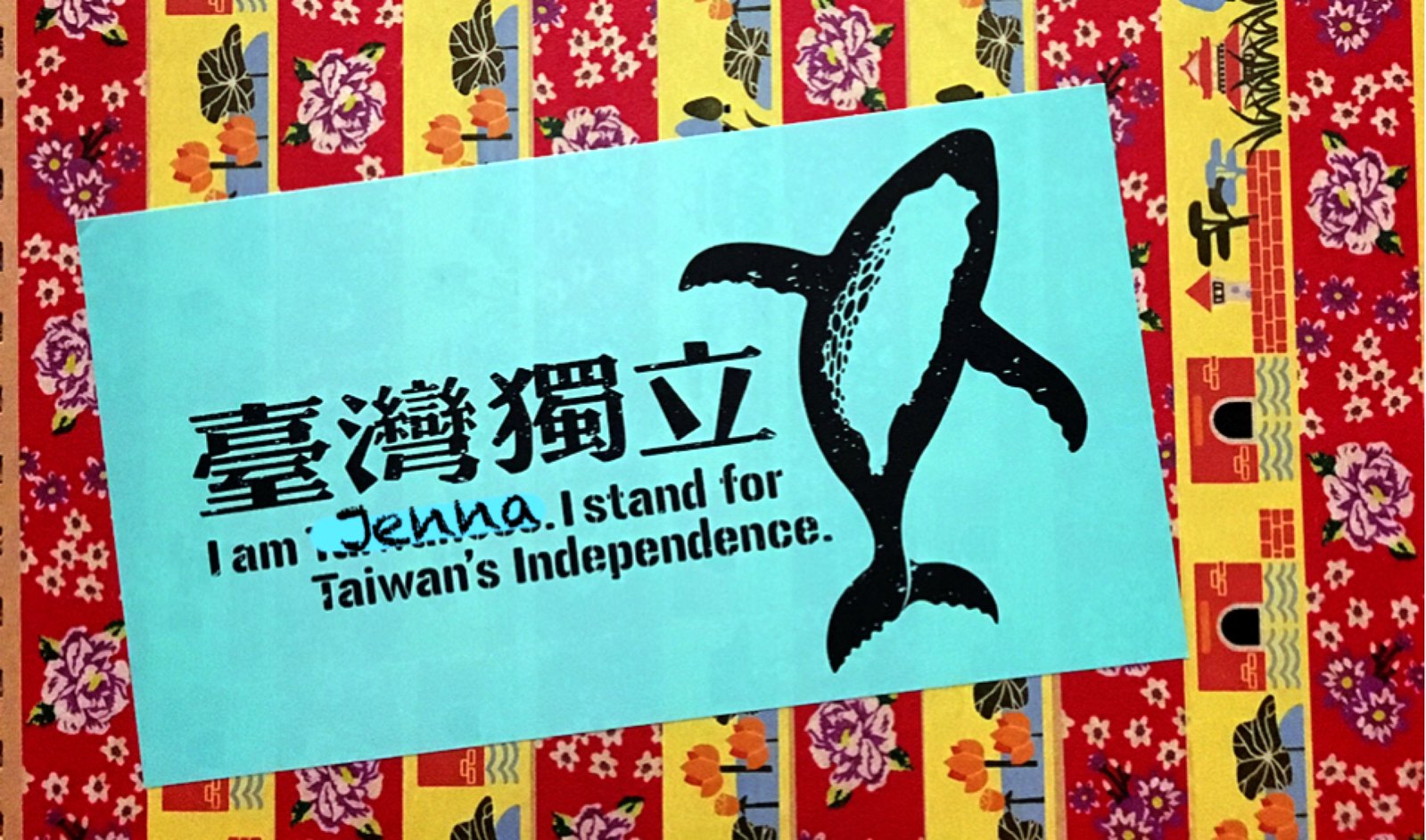
I am not a patriotic person by nature. Even when I was young, with flags in every classroom and prints of portraits of the founding fathers in our history textbooks, the Pledge of Allegiance every morning and the generally rah-rah pro-America conservatism of the town I grew up in, I just wasn't into it. I mouthed the words to the Pledge; pretending to go along was easier then. I applied the same logic to religion: after my parents' shocked reaction when I proclaimed my atheism at a surprisingly young age, and clear disapproval at choosing any belief system that didn't include faith, I pretended there was a God all the way through my confirmation because it was easier than fighting people who had no business telling me what to believe anyway.
Being ex-hippie liberal academics, my parents' attempts to make me into a wholesome young woman who feared God, prayed to Jesus and loved her country were half-hearted but sincere. Their worldview was a constrained liberalism that, while openminded, ultimately colored within the lines. In particular, Mom lamenting that she "didn't do enough" to make me into a good Christian and happy, honor-defending American was an attractive but ultimately specious reasoning for my turning out the way I did. There's nothing she could have done. I decided God didn't exist around the time I figured out Santa Claus wasn't real - I told you I was young when it happened - and I expressed a desire to live abroad as early as junior high school.
What I'm trying to say is, this is a pretty baked-in character trait. I see patriotism as a more Earth-bound form of religion: different faiths and their interpretations are ultimately fake lines drawn in the heavens that mean little beyond how they affect our real-world interactions, and patriotism is the worship of fake lines drawn across the globe delineating arbitrarily-decided "countries" which only matter, again, insofar as they affect how we think and interact (or are allowed to interact) as people. The borders themselves though? They're only real in our minds.
When I was younger, my desire to live abroad was a bit more Machine-approved. I'd always assumed I'd do it through the foreign service, international business or NGO work, academia, that sort of thing. None of them were working out - I hadn't considered in my plans that someone who is at best institution-apathetic would not fit in well at a large organization.
Forget chips on shoulders: I had bricks. Packing up and doing it on my own with a few thousand dollars in savings - and let's be honest, a hefty chunk of white middle-class privilege because I can not entirely escape the benefits of institutions - mortared those bricks right up into something like a moveable fortress. But at least they were off my shoulders.
That was ten years ago. Listen to me now, and I sound like a Taiwan missionary. Spreading the gospel of Taiwan to everyone I meet, and probably being deeply annoying in the process.
Have you accepted Taiwanese democracy into your life?
Here, read this article about Taiwan. It will change your life! I'd be happy to answer any questions you may have.
Did you know that many Taiwanese died for the freedoms we enjoy now, and someday the Republic of Formosa will rise again?
If you are interested, you are welcome to come with me to a protest this Sunday.
Okay, I'm not that bad (usually), but I am a true believer.
So what happened? I'm not a different person - I didn't suddenly decide that loving one's country was great and we should all love our countries and place deep importance on national borders. I didn't become a flag-waving, anthem-singing, crying-eagle-meme-posting patriot. I'm still the same old Jenna who doesn't function well as a cog in a corporate (or government) machine, who thinks God is an interesting fantasy, and who wants to keep her American citizenship as a matter of convenience and who has done her best work without a boss issuing commands.
Yet I do believe. As I've written before, I can really believe in a country that, despite having thousands of missiles pointed at it, wakes up every morning quietly insisting on its continued existence, perseveres, builds and improves itself and refuses to be ground up like so much pork filler in China's world-building sausage-fest and has, against the odds, turned itself into a pretty damn solid first world democracy. I didn't want to be a cog in an organizational machine, and Taiwan refuses to be a casualty of the global realpolitik machine. I feel that. I feel it like some people feel Jesus.
As Double Ten Day approaches - celebrating start of the Xinhai Revolution (in China, not Taiwan) on October 10, 1911 - and as the usual array of "Happy Birthday Taiwan!" nonsense starts appearing, it's given me a moment to reflect on how this came to be. That is, how I managed to be so enamored of Taiwan and yet not a patriot.
I think it's because Taiwan both is and is not a country. It is a sovereign nation in every respect that matters: it is self-governed, has its own military, currency, constitution and international relations and flag. Sort of.
It is also not a country in that the government currently in place here is a foreign one. All of the things it has, which make it fully independent, come from a government neither conceived nor formed in Taiwan, and certainly not by the Taiwanese. That government decided back when Taiwan was a colony of another country that it ought to be theirs - nobody asked the Taiwanese how they felt about this. That government has localized in some ways but not in others, and arguably not in a lot of the ways that matter. (To give one example, the citizenship laws were written in China in the 1920s and have not been meaningfully amended since.) This makes it a colonial government. The Republic of China is a country. Taiwan is still under colonial rule, playing host to its foreign master. It is also independent, a situation which is just as difficult to explain to non-believers as all the contradictions in the Bible are, except in this case it's true.
Imagine if the British government lost its territory in the 1800s and relocated to India, and India today was fully independent under the name and governmental system of Great Britain. Imagine if few recognized this government, opting instead to recognize the People's Republic of Britannia in the British Isles, and nobody recognized that India had a right to not only de jure independence, but to have that independence as India, not Great Britain. It's like that.
Imagine if the day after tomorrow was Magna Carta Day, and all of India would have a public holiday and be expected to celebrate the signing of the Magna Carta, and told all their lives that this was somehow relevant to their own history and land.
I doubt if I were an immigrant in that other-universe version of India that I would care much about "Magna Carta Day", nor about "Great Britain".
Similarly, I don't care much about the Republic of China.
Thinking along these lines, I realized that my love - and missionary zeal - for Taiwan has nothing to do with patriotism. I love Taiwan - the concept, the land, the history, the civic nationalism borne of shared values. I do believe Taiwan deserves statehood and I would happily reside in that state, but I doubt I'd ever be a typical "patriot". I love Taiwan not in the way one is taught to love the arbitrary boundaries defining one's world but which were not chosen: the religion, country and family one was born into (though I do sincerely love my family). I love it the way one love's one's friends or spouse (no, not like that, you know what I mean). As something one chooses because of shared values and other commonalities and compatibilities. I will love Taiwan no matter what happens to its national boundaries, although I wish for it something better than what it has now. After all, I was not born here. My family is not Taiwanese, but my friends are.
I still don't dare say I am Taiwanese - a lot of people get the wrong idea, sure, and also on some level I don't think I deserve the honor. But my heart is here.
The Republic of China? That could disappear tomorrow and I wouldn't care. If it were replaced by the Republic of Taiwan, I'd celebrate. Double Ten Day will come and go this year, as with every other year, and I just won't care.
In short, my heart is Taiwanese, not Republic of Chinese.
Sunday, October 1, 2017
I have massive flag angst
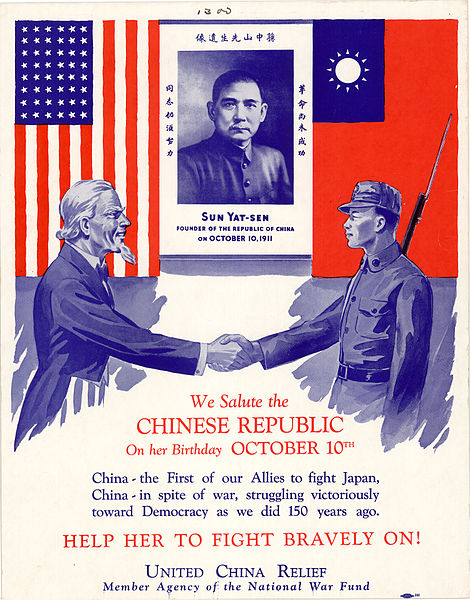 |
| From Wikimedia Commons |
Who would have thought a simple question about a flag could bring up so many emotions about a country I'm not even a citizen of?
But that's exactly what's happened.
A friend pointed this out on Facebook, and he's not wrong:
I think younger people have actually subverted the image and robbed the KMT of the intended meaning....
Now, it seems, the people who have grown up with the ROC flag as a symbol of Taiwan...only see it as representing Taiwan. The China part has been totally lost no matter how hard the KMT tries to push it. The KMT has had their dear symbol stolen from under their noses and they can't do a single thing about it.
This is true (and is also not the first time the point has been made). The current generation of Taiwanese have taken that symbol and turned it into their national flag, stripping it of its previous association with the KMT one-party state and its inherent Chinese/Han chauvinism and unificationism.
Stores sell it, people wear shirts decorated with it and get in trouble if they try to wave it at international sporting events. Some may feel a wave of pride when they see it abroad, as its image is suppressed anywhere Chinese 'soft' power (there is nothing soft about it).
Try as I might to be okay with this, I'm just not. To me, this isn't a victory, although it has positives. This is an accident of history in which a flag that stands for authoritarianism, annexationism and ethnic chauvinism, by being subverted, has made it harder to create something better, something uniquely Taiwanese, something that doesn't create deep feelings of discomfort among some people. Although I'll probably be criticized for this, on some level it feels like that flag, with its KMT sun in the upper left feels like it sort of Stockholm Syndromed itself into the national consciousness (I await your hate mail). With no other clearly superior options forthcoming it became the de facto choice, perhaps making its own subversion necessary. What else do you do without other clear options?
Before you get on my back about those other options, a quick re-tread of a road we've already been down: the green-and-white independence flag is too similar to the DPP flag and the hearts flag and moon flags are a bit boring, and for most don't stir much association with Taiwan. The tiger flag has its own issues - although it is my favorite design by far, I have been told by someone who should know that the tiger was chosen because in Chinese symbolism, tigers are subordinate to dragons, and the stated fealty of the 1895 Republic that flew that flag was to the Qing Empire, whose symbol was a dragon. Also, there have never been tigers in Taiwan. With all of these other choices wanting, what other choice is there but to take the national symbol shoved down your throat and turn it into an actual national symbol of the nation you always envisioned rather than the nation it was meant to represent?
But let me be clear: that KMT sun makes me want to barf. There it sits, as though that party has some sort of special privilege or sacred place in Taiwanese politics more so than any other party; as though their brutal, dictatorial and murderous past could be so easily whitewashed. As though any party deserves a place of privilege in a free democracy, with their party symbol on the national flag. If adopting/subverting the ROC flag as the Taiwanese flag settled the question, to me, that question was settled with the wrong answer.
I'm not entirely sure why I care so much - I didn't grow up here. The KMT didn't torture, murder, imprison, force into exile or 'disappear' any of my family members. I'm an English speaking white girl from New York and not a citizen of Taiwan - why on Earth should I care what the flag is?
And yet here I am, going against the mainstream and being open about not liking it one bit.
This brings up all sorts of difficult questions.
On most issues of Taiwanese civil discourse, I have in the last few years found myself agreeing with a pretty substantial majority, or at least a strong plurality, of locals. I don't hide my pro-marriage equality, pro (eventual, de jure) independence views, my general gravitation towards the views of the Third Force parties, and my support of Taiwanese identity not as a problematic ethnocentric belief but as one of shared history (even recent history) and values.
There was a time when this was not the case - the early Ma years, for example - but back then I didn't have such a strong 'Taiwan identity'. I still don't feel fully comfortable claiming to be anything other than a foreigner, but I don't feel remotely the same way as I did in 2008. Back then I still assumed I'd go 'home' someday, or travel and live elsewhere, and that 'home' was in the United States. It was easy to say that my personal opinions didn't really matter because I was not Taiwanese, I could not vote, and ultimately what I thought wasn't important. This was a good thing for the time, because many of my views, while now mainstream, were absolutely not the majority view then.
At some point, something changed; something inside cracked open (if you were wondering if this happened around 2014 - yes, yes it did). I went from "I'll probably go home someday" to "I want dual nationality because this is my home." Not everyone understands this, though, so when I talk to such people, I still tend to frame my opinions this way: yes, I believe in certain things, but so do many, if not a strong majority, of Taiwanese. So I'm not trying to force my opinions on anyone - I more or less support what most people do.
This is the easiest way to buffer the criticism that being a foreigner living in and writing about Taiwan inherently courts, because honestly, there will always be people who just don't get it. Some might incorrectly think that my considering Taiwan home is a weird racial fetish thing (it's not - the desire to change one's race strikes me as deeply odd and problematic). Some might think I want to be just another whitey hoping to climb to the top of the dogheap in some kinder foreign country where being white confers extra privilege simply due to standing out, because I couldn't make it where I came from (also not true: my ambitions don't include wanting to be at the top of anything.) Some will think a foreigner in Taiwan - or a Westerner in any non-Western country - is always an invader, leech or both. Some will think any opinion I have that diverges from the mainstream is simply that of yet another whitey who thinks their 'superior' view can 'enlighten' the 'locals'.
Very few understand that I simply have an opinion on my home because I live here too. What happens here affects me, and it is natural to have opinions about issues concerning one's home. American politics, at this point, feels like 'foreign affairs' to me even though that is the country in which I vote. What happens in Taiwan affects me on a granular level. Why wouldn't I care about that?
Even fewer understand that I'm not necessarily out to change local minds on this or almost any issue, and in fact I rarely write in Chinese because I don't necessarily like the idea of a foreign resident trying to affect local discourse in that way (one exception can be found here, regarding convicted sex offenders being allowed to hire domestic workers).
I might say I support self-determination - the right of the Taiwanese to decide how to run their country. And I do. At the same time, I just don't agree with the way society has chosen to accept that flag, so saying "well I just support self-determination" comes across as insincere if not hollow. I just don't like it, and although the people I hang around tend to agree with me, most people don't.
Of course, these two things are not the same, which is easy to digest when the discussion is centered on one's native country. I don't like the way the latest American election turned out, but that doesn't mean I think democracy is a load of crap (I do think the electoral college is, but that's another issue). I can likewise support the right of Taiwanese citizens to decide for themselves what the ROC flag symbolizes, without liking the outcome.
However, it's so common for critics of expat political commentary in any country to not draw that distinction - assuming that foreign nationals must agree with local decisions otherwise they're just White Savior Western Cultural Imperialist Jerks - that it must be clarified.
So, to what extent do I get to have and express my own opinions on Taiwan, especially when they diverge from the mainstream? At what point does doing so make me someone trying to push a foreigner's view on the rest of the country? How long do I have to live here, and what sort of assimilation is necessary, before my views are as legitimate as those of any Taiwanese? I can't say it enough: this is my home. Am I still obligated to subordinate my personal views to that of the majority in a way a dissenting local would not? What right do I have to have a minority opinion about a country I'm not from?
At what point is this an opinion I hold about my home, rather than an opinion a foreigner holds about a country she does not hold citizenship in?
I could ignore all of this, knowing that haters are, as the adage goes, gonna hate. If someone has decided to believe that foreigners' dissenting views are never welcome, that's just what they're going to believe. On a molecular level I don't really care what they think. If you're reading this now and you hate me - well, first, you're probably not alone, but secondly, I sincerely and truly don't care. My opinion isn't going to change just because you don't like it.
On the other hand, if I am going to advocate for Taiwan more generally, I have to engage with these questions. It keeps me honest - if I ever tread too close to 'enlightened white lady wants to make the benighted locals' I want to know about it so I can stop. It also helps me remember that I'm not writing about these issues because I think I know better than Taiwanese society, but because this is my home too, so I get to have and express an opinion. It helps me remember when it's worth taking that expression beyond the expat and English-speaking bubble and into the realm of local discourse (answer: almost never). It also helps me work on framing what I have to say in a way that can't be as easily dismissed.
It also helps me remember what privilege I do have. I lack the ability to be activist in certain ways here - I'm too easily identified, too easily made a target, too easily criticized for being "not Taiwanese" or "making it all about me" (Taiwanese Americans might be similarly criticized as not 'Taiwanese' enough, but it's not quite the same as having an obviously foreign face). I do think it's important to seek out Taiwanese voices on Taiwanese issues and to actually listen to them. That might get me down, but I have to remember that, for all of the things I can't do, standing out (that is, making it easier to draw attention to what I have to say) and being a native-level English user from a background of comparative advantage - how many Taiwanese can up and move to the US the way I moved to Taiwan? - are privileges I should neither forget I have nor take for granted.
I don't have answers - I'm still not sure where that line is. All I can say for sure is that this is my home, so I do get to have an opinion as what happens here affects me too. Everything else is still kind of up in the air.
My politics are open: I'm not a fan of the flag of the Republic of China, nor of the Republic of China generally. I view it as a foreign entity that unfortunately governs, but is philosophically and historically distinct from, Taiwan. Taiwan is my home; the Republic of China is not. I feel nothing when I see the flag of the Republic of China flying. I feel quite a bit when I see images I more closely associate with Taiwan.
It's easy to get involved when one agrees with the zeigeist. It's not so easy when one opposes it, but is very obviously foreign. I know there are locals who agree - it's not just Lao Ren Cha against the rest of Taiwan. The question going forward is how to best support those locals and work with them without making it all about me.
Monday, October 10, 2016
Public celebrates Sun Yat-sen's founding of Taiwan
CHINESE TAIPEI, REPUBLIC OF TAIWAN (CHINA):
Citizens across the country celebrated Sun Yat-sen's founding of Taiwan 105 years ago today. Known as "Double Ten", the holiday celebrates Taiwan's founding just over a century ago on October 10 from volcanic eruptions creating an island where there had previously been open sea.
"On October 10, 1911, Dr. Sun raised his arms, sang the incantation, and Taiwan rose from the ocean. This is why the Portuguese named it Ilha Formosa, for the island's great natural beauty, when they came to the region in 1544," explained former president Ma Ying-jiu, who was on leave from his new post-presidential post as an exhibit in Madame Tussaud's.
"Before 1911, there was no Taiwan," explained Taipei resident Chang An-lo. "Now, there is Chin- I mean Taiwa- I mean the Republic of China. Happy birthday!"
In 1911, what was then known as the Chinese Sea (property of China) was a popular open-water fishing spot, where fishermen from China had been recorded plying their trade since ancient times. Then, visonary thinker and revolutionary Dr. Sun determined that an island should exist in that spot. He opened the Ancient Book of I-Ching, found the chapter on inciting volcanic activity, waved his arms in the precise circumlocutions proscribed by his ancestors, and caused modern Taiwan to erupt from the sea floor.
Despite a few visits to his creation by Dr. Sun, his successors appeared unaware that the island brought into being by their mentor was birthed with a full population that spoke Japanese, Taiwanese and several aboriginal languages, many of whom had neither ever visited China nor spoke any language familiar to the majority of Chinese.
"I remember my grandmother's stories about how Dr. Sun caused her to come into being," noted an Atayal village elder known as A-mue. "It all sounded very exciting."
China and Taiwan separated in 1949 after a brutal civil war forced the KMT to flee from China to the Republic of China. Before that time, China and Taiwan had been united without any division since antiquity.
"Happy birthday, Taiwan!" said Auntie Ho, while turning down the volume of the TVBS show she was watching.
"But, in 1911 Taiwan was a Japanese colony," countered neighbor Pubic Wang. "Double Ten has nothing to do with Taiwan really."
"Ssssshhhhhhh," Auntie Ho replied. "Stop complaining so much. Nobody likes a complainer who doesn't understand history and our 5,000 years of culture since 1911. Taiwan is a democracy now so we can all give our opinions, so please stop giving your opinion after I give my opinion. I love my flag, which is the flag of Taiwan."
Stated Wang, "The flag of the Republic of China - which was not conceived in Taiwan, still depicts the KMT sun, which shows that Taiwan still has a long way to go if it is to carve out a distinct identity and future from its authoritarian pa--"
"I said shh! We should celebrate all of the wonderful things the Republic of China has given Taiwan, like 228 Peace Park, the Jingmei Human Rights Museum and a national holiday!" snapped Ho. "Without Sun Yat-sen, you wouldn't even exist!"
Citizens across the country celebrated Sun Yat-sen's founding of Taiwan 105 years ago today. Known as "Double Ten", the holiday celebrates Taiwan's founding just over a century ago on October 10 from volcanic eruptions creating an island where there had previously been open sea.
"On October 10, 1911, Dr. Sun raised his arms, sang the incantation, and Taiwan rose from the ocean. This is why the Portuguese named it Ilha Formosa, for the island's great natural beauty, when they came to the region in 1544," explained former president Ma Ying-jiu, who was on leave from his new post-presidential post as an exhibit in Madame Tussaud's.
"Before 1911, there was no Taiwan," explained Taipei resident Chang An-lo. "Now, there is Chin- I mean Taiwa- I mean the Republic of China. Happy birthday!"
In 1911, what was then known as the Chinese Sea (property of China) was a popular open-water fishing spot, where fishermen from China had been recorded plying their trade since ancient times. Then, visonary thinker and revolutionary Dr. Sun determined that an island should exist in that spot. He opened the Ancient Book of I-Ching, found the chapter on inciting volcanic activity, waved his arms in the precise circumlocutions proscribed by his ancestors, and caused modern Taiwan to erupt from the sea floor.
Despite a few visits to his creation by Dr. Sun, his successors appeared unaware that the island brought into being by their mentor was birthed with a full population that spoke Japanese, Taiwanese and several aboriginal languages, many of whom had neither ever visited China nor spoke any language familiar to the majority of Chinese.
"I remember my grandmother's stories about how Dr. Sun caused her to come into being," noted an Atayal village elder known as A-mue. "It all sounded very exciting."
China and Taiwan separated in 1949 after a brutal civil war forced the KMT to flee from China to the Republic of China. Before that time, China and Taiwan had been united without any division since antiquity.
 |
| Taiwan before it existed c. 1910 |
"Happy birthday, Taiwan!" said Auntie Ho, while turning down the volume of the TVBS show she was watching.
"But, in 1911 Taiwan was a Japanese colony," countered neighbor Pubic Wang. "Double Ten has nothing to do with Taiwan really."
"Ssssshhhhhhh," Auntie Ho replied. "Stop complaining so much. Nobody likes a complainer who doesn't understand history and our 5,000 years of culture since 1911. Taiwan is a democracy now so we can all give our opinions, so please stop giving your opinion after I give my opinion. I love my flag, which is the flag of Taiwan."
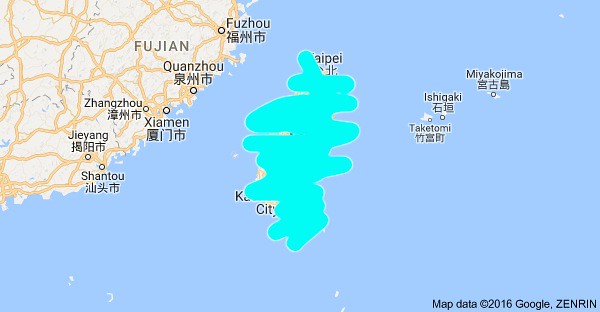 |
| Taiwan before it was created by Dr. Sun Yat-sen in 1911 |
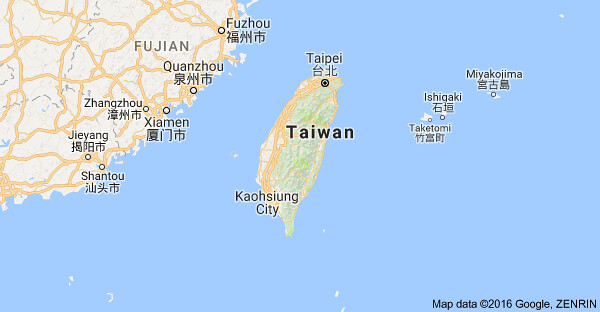 |
| Taiwan after 1911 |
Stated Wang, "The flag of the Republic of China - which was not conceived in Taiwan, still depicts the KMT sun, which shows that Taiwan still has a long way to go if it is to carve out a distinct identity and future from its authoritarian pa--"
"I said shh! We should celebrate all of the wonderful things the Republic of China has given Taiwan, like 228 Peace Park, the Jingmei Human Rights Museum and a national holiday!" snapped Ho. "Without Sun Yat-sen, you wouldn't even exist!"
Subscribe to:
Posts (Atom)

